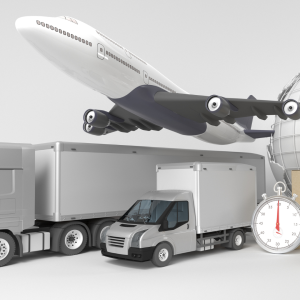 Digital transformation is rapidly becoming essential for freight forwarders, fundamentally reshaping the logistics landscape by integrating advanced technology solutions to enhance operations, improve efficiency, and meet the evolving demands of the global supply chain.
Digital transformation is rapidly becoming essential for freight forwarders, fundamentally reshaping the logistics landscape by integrating advanced technology solutions to enhance operations, improve efficiency, and meet the evolving demands of the global supply chain.
What is Digital Transformation in Logistics?
Digital transformation in logistics refers to the process of adopting digital technologies and strategies to optimize and streamline logistics and supply chain operations. This can involve automating manual processes, using data analytics for better decision-making, enhancing communication tools, using cloud-based platforms, and more. For fpaper-based, and often fragmented systems to integrated, tech-driven solutions.
What Does a Digital Freight Forwarder Do?
A digital freight forwarder leverages modern technology to optimize the end-to-end logistics process. This can include using digital platforms to book and track shipments, automating documentation processes, and providing real-time data to carriers and shippers. Digital freight forwarders often use artificial intelligence, blockchain, Internet of Things (IoT) devices, and big data analytics to ensure transparency, improve operational efficiencies, and enhance customer satisfaction.
Why is Digital Transformation Essential for Freight Forwarders?
- Increased Efficiency and Reduced Costs: Automated processes reduce manual errors, improve accuracy, and reduce operational costs by eliminating redundant tasks. A digital freight forwarding platform can reduce administrative overhead, streamline communication, and provide better operational visibility.
- Enhanced Visibility and Transparency: Real-time tracking and digital dashboards offer shippers better insights into their cargo, allowing them to monitor their shipments at any point in the supply chain. Enhanced visibility helps mitigate risks, improves predictability, and leads to better customer service.
- Improved Customer Experience: Customers today expect seamless, instant service. By digitizing the freight process, companies can provide real-time quotes, updates on shipping status, and faster response times, enhancing overall customer satisfaction.
- Scalability and Flexibility: Digital platforms enable freight forwarders to scale operations quickly and flexibly to meet market demands. By leveraging cloud-based solutions, forwarders can adapt their services to accommodate different shipment sizes, routes, and schedules without major infrastructure changes.
- Data-Driven Decision Making: With access to large volumes of data, freight forwarders can utilize analytics to optimize routes, reduce costs, and predict demand. Predictive analytics allows companies to anticipate supply chain disruptions and take preventive actions.
- Global Competition: The rise of digital-native competitors and the increasing reliance of shippers on real-time data and efficient service models necessitate a strong digital presence for traditional freight forwarders. Digital transformation levels the playing field and provides the means to compete in a technology-driven market.
- Regulatory Compliance and Security: Digitized processes often offer built-in compliance features and data security protocols, which can simplify adhering to international trade regulations and data privacy laws.

While the benefits are substantial, digital transformation presents challenges, such as initial costs, staff retraining, cybersecurity risks, and potential organizational resistance to change. However, these challenges can be mitigated through strategic planning, collaboration with technology partners, and continuous improvement efforts.
Digital transformation is no longer an option but a strategic necessity for freight forwarders. Adopting digital freight technology helps them stay competitive, improves operational efficiencies, enhances customer satisfaction, and ensures compliance with evolving market demands. As the industry embraces digitalization, those who fail to adopt these advancements risk being left behind in an increasingly tech-driven logistics sector.



Leave A Comment
You must be logged in to post a comment.